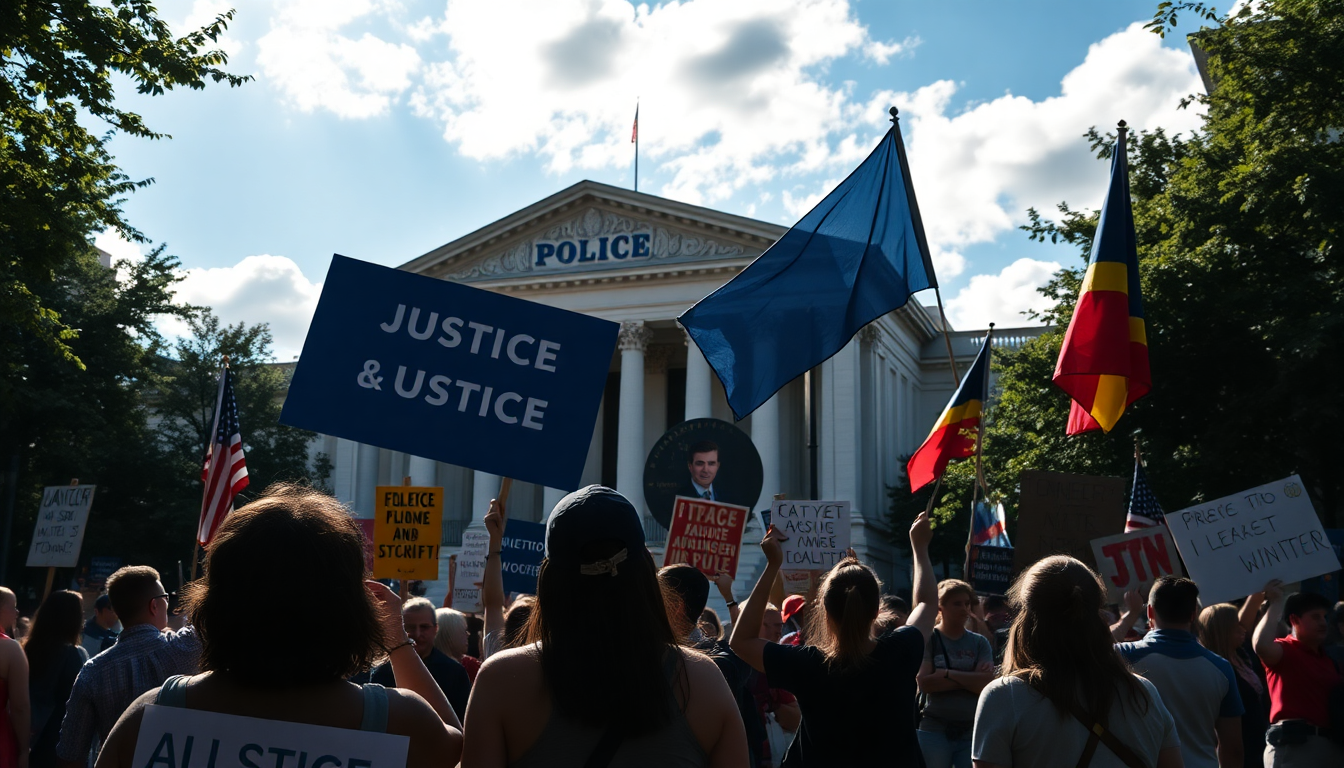Table of Contents
Police accountability has become a hot topic in America, especially after recent high-profile incidents that have sparked nationwide conversations about civil rights and justice. One case that has gained attention is that of a former police officer in Louisville, which highlights the ongoing struggles faced by marginalized communities across the country. In this article, we’ll unpack the details of this case, its impact on civil rights, and what it means for police accountability in the U.S.
Breaking Down the Recent Case
At the center of the conversation is a former Louisville police officer who is now facing sentencing for violating the civil rights of Breonna Taylor, a Black woman whose life was tragically cut short during a police raid in March 2020. What’s particularly frustrating for Taylor’s family and advocates for justice is the Justice Department’s recommendation of a mere one-day prison sentence for the officer involved. Can you imagine the outrage this has caused, especially given the ongoing protests demanding accountability for police actions towards people of color?
Breonna Taylor was killed when police executed a no-knock warrant—something that’s stirred up a lot of debate due to its controversial nature. This heartbreaking incident not only triggered widespread protests but also echoed the national response to the murder of George Floyd in Minneapolis. Both cases starkly illustrate the urgent need for reform in how police operate and how they are held accountable for their actions.
The Justice Department’s Actions: What’s Going On?
The Biden administration’s Justice Department has been pursuing criminal civil rights charges against the officers involved in both Taylor’s and Floyd’s deaths. However, the recent sentencing recommendation for former detective Brett Hankison has raised eyebrows. The department’s memo seems to downplay Hankison’s involvement, stating that he “did not shoot Ms. Taylor and is not otherwise responsible for her death.” This assertion has stirred up quite a bit of anger, particularly because it wasn’t supported by the career prosecutors who originally took on the case.
What’s more concerning is that this recommendation comes from politically appointed officials within the Justice Department, leading many to question the integrity of the entire process. It appears to be part of a troubling trend that undermines efforts to hold police accountable. Just earlier this year, there were attempts to backtrack on a court-approved settlement with the Louisville Police Department, which raises serious concerns about the commitment to civil rights enforcement.
Demanding Real Justice and Accountability
Attorneys for Taylor’s family have expressed their outrage at the Justice Department’s stance, calling it an insult to Breonna’s memory and a significant setback for civil rights advocacy. They are imploring the presiding judge to issue a sentence that truly reflects the seriousness of the violation and the life that was lost. As this case progresses, it will serve as a critical test of the current administration’s dedication to upholding civil rights within law enforcement.
The ongoing conversation about police accountability in America is absolutely crucial. It’s not just about looking back at past actions; it’s also about laying down a framework for how law enforcement should operate moving forward. As society continues to grapple with these pressing issues, the demand for justice and accountability is more important than ever. The outcome of this case will likely shape how the public views law enforcement and the effectiveness of government oversight in safeguarding citizens’ rights. Are we ready to see real change?


